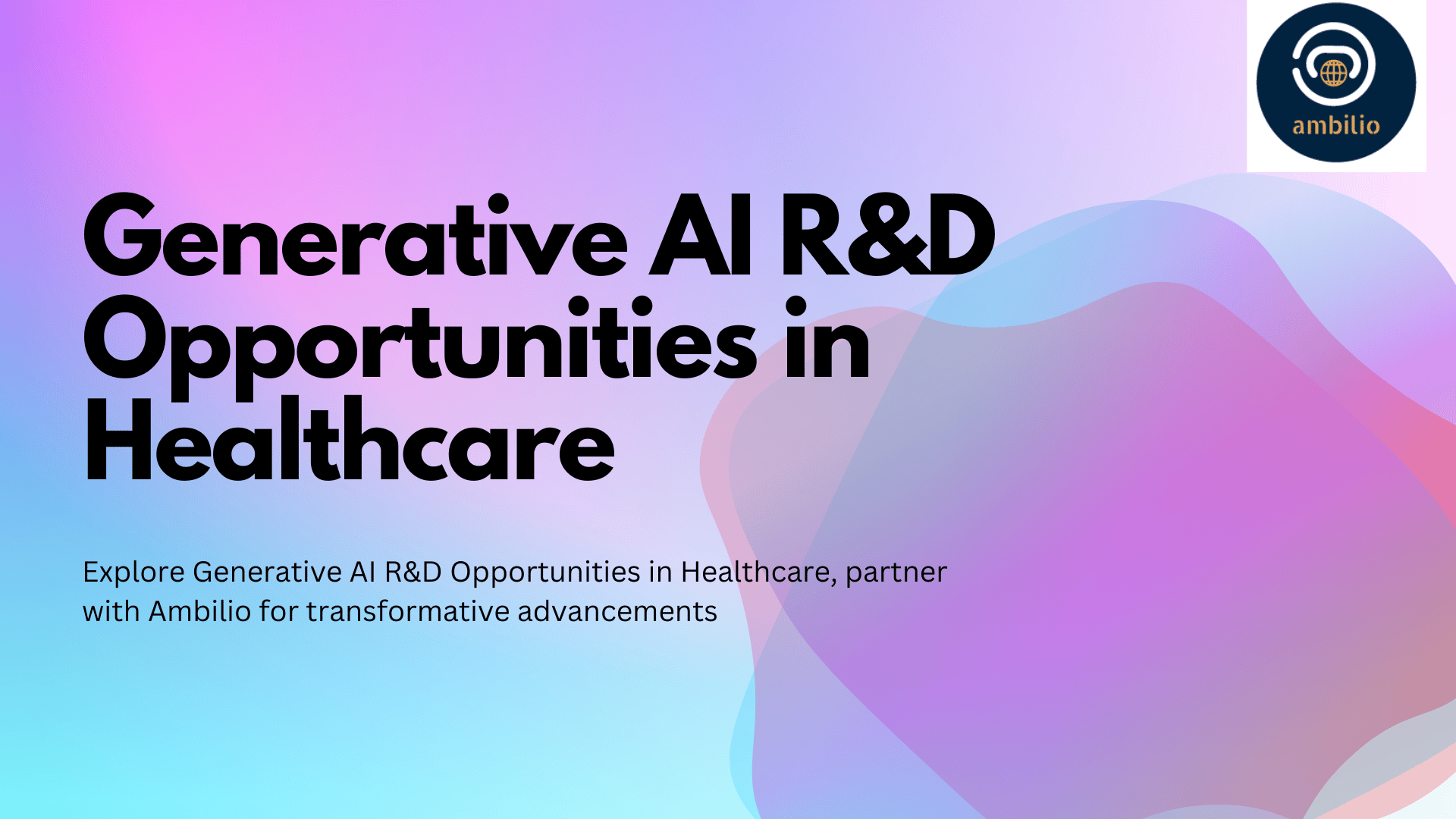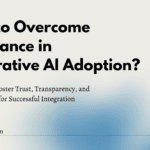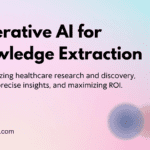In the ever-evolving landscape of healthcare, technological advancements have been pivotal in driving innovation and transforming patient care. Among these advancements, Generative AI stands out as a potent tool with immense potential to revolutionize various facets of the healthcare industry. From accelerating drug discovery to enabling personalized medicine, Generative AI offers a plethora of novel Research and Development (R&D) opportunities that hold high business value. In this article, we delve into some of the top novel Generative AI R&D opportunities in healthcare that promise to reshape the future of the industry.
1. Drug Discovery and Development
Generative AI has emerged as a game-changer in the realm of drug discovery and development. By leveraging machine learning algorithms and vast datasets encompassing clinical trials, patient records, and scientific literature, AI can identify potential new drugs, predict their effectiveness, and optimize the drug development process. This not only accelerates the pace of bringing new therapeutics to market but also significantly reduces the associated time and costs.
2. Personalized Medicine
Personalized medicine, tailored to individual patients based on their unique genetic makeup, lifestyle, and medical history, represents the future of healthcare. Generative AI plays a pivotal role in this paradigm shift by analyzing complex datasets to create personalized treatment plans. By understanding the nuances of each patient’s biology and predicting their response to different therapies, AI enables healthcare providers to deliver more effective treatments while minimizing adverse effects.
3. Predictive Analytics in Healthcare
Predictive analytics powered by Generative AI enables proactive healthcare interventions by forecasting health risks and diseases before they manifest clinically. By analyzing diverse patient data sources, including electronic health records, genetic information, and lifestyle factors, AI algorithms can identify patterns and trends indicative of potential health issues. This empowers healthcare providers to intervene early, thus mitigating risks, improving patient outcomes, and reducing healthcare costs.
4. Medical Imaging and Diagnostics
Medical imaging plays a crucial role in diagnosing diseases and guiding treatment decisions. Generative AI enhances medical imaging and diagnostics by leveraging deep learning algorithms to analyze complex imaging data such as X-rays, MRIs, and CT scans. By accurately detecting abnormalities and assisting radiologists in interpretation, AI-driven diagnostic tools facilitate early disease detection, thereby improving patient outcomes and streamlining healthcare workflows.
5. Virtual Health Assistants
Virtual health assistants powered by Generative AI serve as personalized healthcare companions, providing patients with timely health advice, reminders, and support. These AI-driven assistants leverage natural language processing and machine learning to engage with patients, address their queries, and offer guidance on managing their health conditions. By promoting patient engagement and self-management, virtual health assistants contribute to improved health outcomes and enhanced patient satisfaction.
6. Clinical Decision Support
Clinical decision support systems powered by Generative AI empower healthcare providers with real-time, evidence-based recommendations, thus augmenting clinical decision-making. By synthesizing vast amounts of patient data, medical literature, and clinical guidelines, AI algorithms assist physicians in formulating optimal treatment plans tailored to individual patient needs. This not only enhances the quality of care but also reduces medical errors and improves patient safety.
7. Telemedicine
Telemedicine has emerged as a vital healthcare modality, especially in light of the COVID-19 pandemic. Generative AI enhances telemedicine services by enabling remote monitoring, diagnosis, and treatment through virtual consultations. By leveraging AI-driven algorithms for remote patient assessment and triage, telemedicine platforms facilitate timely access to healthcare services, particularly for individuals in remote or underserved areas.
8. Healthcare Operations
Generative AI optimizes healthcare operations by automating processes such as scheduling, resource allocation, and supply chain management. By analyzing operational data and forecasting demand, AI-driven systems enhance efficiency, reduce costs, and improve patient flow within healthcare facilities. This enables healthcare organizations to streamline operations and allocate resources more effectively, ultimately enhancing patient care delivery.
Final Words
Generative AI holds tremendous promise in reshaping the landscape of healthcare by unlocking novel R&D opportunities that drive innovation and deliver high business value. From expediting drug discovery to enabling personalized medicine and optimizing healthcare operations, the applications of Generative AI in healthcare are vast and far-reaching. As organizations continue to invest in AI-driven technologies, the future of healthcare looks increasingly promising, with Generative AI at the forefront of transformative change.
In conclusion, the integration of Generative AI into healthcare holds the potential to usher in a new era of precision medicine, proactive healthcare interventions, and enhanced patient experiences, ultimately advancing the goal of delivering accessible, efficient, and high-quality healthcare to all.



